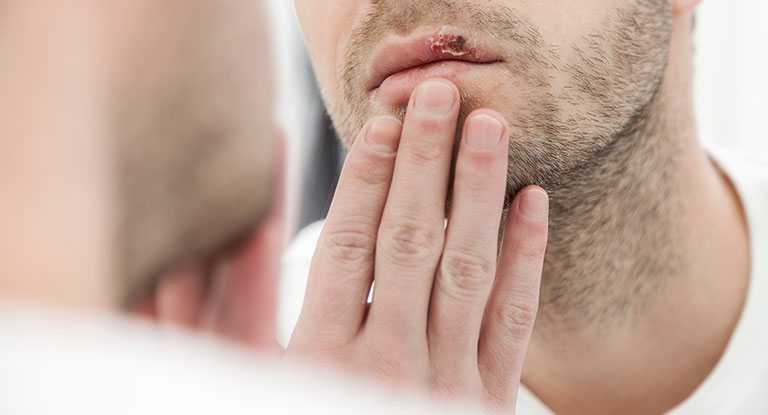

Mouth ulcers are painful sores that happen inside your mouth — they can be red or yellow, and they are different from cold sores. Cold sores are caused by a virus, and they appear on the outer lips.
A single mouth ulcer is usually caused by biting the tongue or cheek. It can also be caused by brushing, sharp teeth, or by poorly fitting dentures. This type is known as “traumatic ulcers”, and it is called “recurrent aphthous stomatitis” if they are many and they keep coming back.
They are next to the cause of the damage, and they usually go away on their own, and they are healed once the root cause of the problem is removed.
This is a common dental problem, and it is characterised by the repeated formation of mouth ulcers in young people and healthy children.
The cause of this type of mouth ulcer is not known, but it is not an infection and cannot be inherited.

Recurrent mouth ulcers are of different types. The most common are minor ulcers — they appear inside the cheeks, on the tongue, gums, lips, and in rare cases, on the roof of the mouth. The size of most ulcers is the same as the size of the top of a pencil, and sometimes they appear in clusters. It can be up to four or six at a time.
Large ulcers are more severe, and they take longer time to heal. However, any ulcer that lasts for more than 3 weeks should be checked by a dentist or a doctor. Large ulcers that appear near the tonsils are very painful especially when you swallow, and you can only get this one at a time. You can also have up to a hundred very small and painful ulcers, and they can last for one to two weeks.
These last two varieties are rare though. You can also have ulcers in other parts of your body like your genital areas or eyes, and you have to tell a doctor about this.
Infections can cause mouth ulcers. An example is herpes simplex, and it is a common cause of mouth ulcers in children and adults. Other less common causes are bacterial and viral infections. They can cause mouth ulcers, but they are rare. Other medical conditions can also cause mouth ulcers — some of them are blood disorders, anaemia, gastrointestinal diseases, and skin problems.
Sometimes, mouth ulcers can be the only sign of an underlying medical condition that needs treatment. So, don’t take mouth ulcers for granted. Make sure you see a dentist immediately you notice one.
Most times, cancer of the mouth appear as mouth ulcers; however, not all mouth ulcers are cancer of the mouth. It is cancer of the mouth if it is single and lasts for a long time and there are no visible nearby causes of the mouth ulcer like a sharp tooth.
See a dentist immediately for any ulcer that lasts for more than 3 weeks. Mouth ulcers caused by cancer can also appear on the tongue or under the tongue, but in rare cases, it can also appear in any part of the mouth. Heavy smoking and drinking are the leading causes of mouth cancer; your risk of mouth cancer will increase greatly if you do these together.

No, you can’t contract mouth ulcers by sharing drinks and eating utensils or by kissing.
The treatment method used depends on the cause of the mouth ulcer. Sometimes, the sharp tooth (if that is the cause) is smoothened down, or the denture is adjusted, and this, in turn will solve this problem.
However, it can be treated with tablets or mouthwashes in some patients.
If you have mouth ulcers and it lasts for more than 3 weeks, you should see a dentist immediately for treatment and advice.
You can contact us in Harley Street, London if you have mouth ulcer, we will look at it, tell you the cause, and also provide the best treatment that suits your case.
We will carry out more tests on you or refer you to a doctor.
You can reduce your risks of mouth ulcers by paying attention to the following tips below:
Most mouth ulcers usually go away on its own, but if it persists beyond 3 weeks, you have to see a dentist immediately. Your mouth will be examined by the dentist to ensure it is just mouth ulcer and not something serious like mouth cancer. Visit a dentist if your mouth ulcer comes and often goes. In cases where the symptoms exceed 3 weeks, and you begin to notice that you are not feeling fine, tests will be carried out to ensure that there is no underlying medical cause.
For more information about treatment of mouth ulcers and methods of prevention, contact our dentist for expert advice. Do give us a call today 020 71834091 to book an appointment with our dentist.